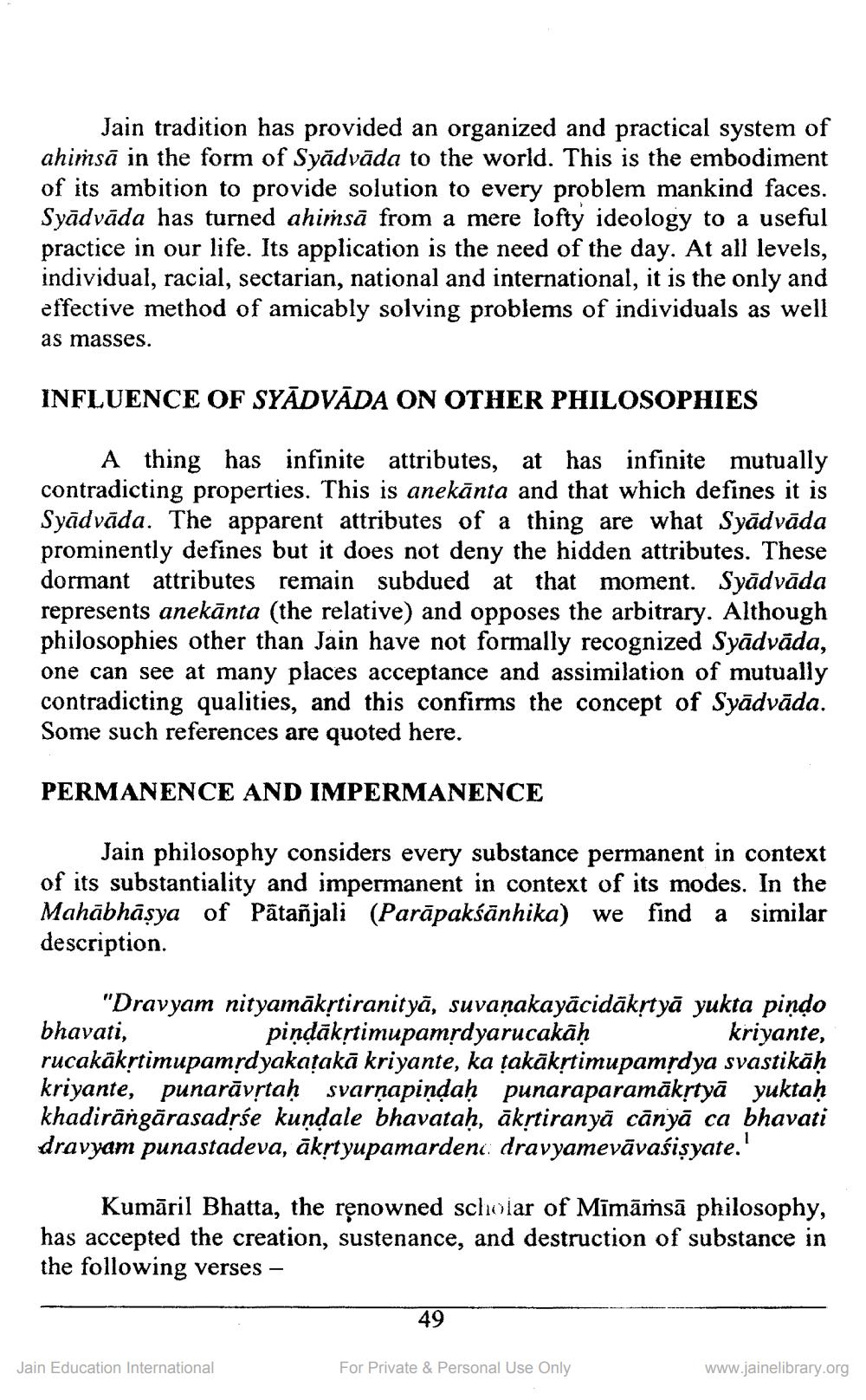________________
Jain tradition has provided an organized and practical system of ahiṁsā in the form of Syādvāda to the world. This is the embodiment of its ambition to provide solution to every problem mankind faces. Syādvāda has turned ahiṁsā from a mere lofty ideology to a useful practice in our life. Its application is the need of the day. At all levels, individual, racial, sectarian, national and international, it is the only and effective method of amicably solving problems of individuals as well as masses.
INFLUENCE OF SYĀDVĀDA ON OTHER PHILOSOPHIES
A thing has infinite attributes, at has infinite mutually contradicting properties. This is anekānta and that which defines it is Syādvāda. The apparent attributes of a thing are what Syādvāda prominently defines but it does not deny the hidden attributes. These dormant attributes remain subdued at that moment. Syādvāda represents anekānta (the relative) and opposes the arbitrary. Although philosophies other than Jain have not formally recognized Syādvāda, one can see at many places acceptance and assimilation of mutually contradicting qualities, and this confirms the concept of Syādvāda. Some such references are quoted here.
PERMANENCE AND IMPERMANENCE
Jain philosophy considers every substance permanent in context of its substantiality and impermanent in context of its modes. In the Mahābhāșya of Pātañjali (Parāpakšānhika) we find a similar description.
"Dravyam nityamākstiranityā, suvaņakayācidākrtyā yukta piņdo bhavati, piņdākstimupamsdyarucakāḥ
kriyante, rucakākştimupamrdyakatakā kriyante, ka țakākştimupamrdya svastikāḥ kriyante, punarāvstaḥ svarnapindaḥ punaraparamākrtyā yuktaḥ khadirāngārasadrśe kundale bhavataḥ, ākstiranyā cānyā ca bhavati dravyam punastadeva, ākstyupamardeno dravyamevāvašişyate.'
Kumāril Bhatta, the renowned scholar of Mīmāṁsā philosophy, has accepted the creation, sustenance, and destruction of substance in the following verses –
49
Jain Education International
For Private & Personal Use Only
www.jainelibrary.org




